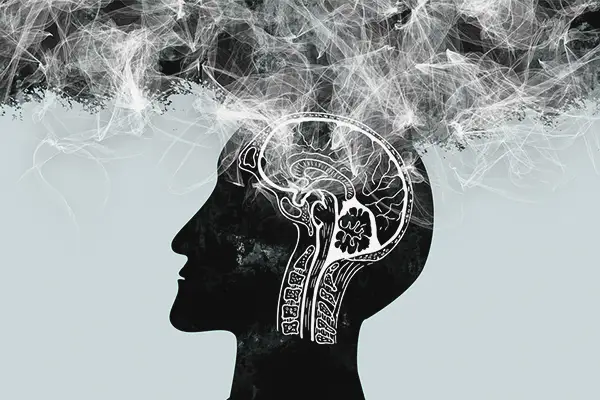The most common type of dementia, Alzheimer’s disease can happen to anyone around you. Although there is currently no cure, symptoms can be alleviated with appropriate medications and precautions. If someone at your home is diagnosed with this condition, you must learn more about the signs.
In this blog post, we’ll explain some of the most common symptoms of Alzheimer’s and suggest you some steps you can take as a caregiver. So let’s get started!
Becoming confused with time, date and place
The main sign of this disease is that the patient is confused about what they already know. For example, if a person begins to become confused about the time, date, year, or place they have been to or have known for years, this could be an early sign of the condition.
In this case, caregivers shouldn’t get impatient, instead, they should monitor the situation, handle it calmly, and make sure it’s just a lack of sensitivity or something more serious.
Poor judgment and lack of logic

Another warning sign of the onset of this disease is when the individual begins to experience changes in their overall perception and judgment skills, even starting to make extravagant statements and impossible without a logical basis.
Reasoning and judgment are two basic motor functions of the brain which, of course, depending on the personality and level of intelligence and general perception of the individual, are performed automatically without having to think about it. .
Key examples of ways the illness can affect your loved one’s logic, reasoning, and judgment include:
- Forgetting how to drive or getting lost on a short and familiar route
- Unable to identify obvious hazards while driving and other hazardous situations
- Loss of ability to judge manners in different conversations
- Standards of personal hygiene and household hygiene are falling
Of course, remember that everyone, regardless of their age and health, forgets things sometimes, so there’s no need to panic the next time you forget where you left your car keys.
Sudden changes in personality & mood
Uncertainty in one’s personality and mood swings should not be completely ignored. If the condition occurs in older adults, there could be several other reasons, but take it as a warning sign, make an appointment with your doctor, and determine if it’s Alzheimer’s.
This patient may begin to experience sudden mood swings, personality changes, and confusion in mind.
Reluctance to leave home
There can be a number of reasons why a child does not want to leave the house such as depression, anxiety, etc. However, caregivers need to determine the exact reason. You can track their activities, such as whether they are avoiding calls or not wanting to chat, which could be early signs of a problem.
As a family, if you are concerned about your loved one no longer being happy and comfortable in their area, you might consider trying to get the patient to move to an assisted living in Scottsdale, AZ.
Neglected household chores
Last but not least, patients with Alzheimer’s disease may skip common household chores such as washing dishes, washing clothes, mopping floors, or dusting the house. So it’s better to observe their activities and see if they can maintain their personal hygiene and help them do it.
A person with such conditions may have difficulty performing simple daily tasks. In such cases, assisted living facilities can provide appropriate services such as skill development, daily activities, etc., while providing them with independence.
Alzheimer’s disease in later stages
The signs mentioned above are most commonly seen in people with memory-related diseases such as Alzheimer’s disease or other types of dementia. While we are aware of the fact that this condition is not curable and that it only gets worse over time, several other symptoms are also considered progression of the condition:
- Walking problems due to swollen feet and ankles, as well as general loss of balance
- Development of swallowing and chewing problems leads to weight loss
- Need help with daily activities such as going to the bathroom, bathing, and dressing
- Try to understand more basic sentences
- Total disregard and ignorance of body language
- Thinking, memory, and decision making get worse
- Can’t sleep one night and then oversleep the next night
- Illusions and hallucinations
- Can’t tell if it’s day or night
- Forgetting the names and even faces of children, partners and other loved ones
Helpful tips for primary caregivers
While caring for someone with Alzheimer’s, don’t forget to take care of your own mental and physical health. Living with a dementia patient can be mentally and physically exhausting. But you can’t help someone when you’re struggling with yourself. Therefore, a well-known memory care facility should be considered. In case it doesn’t work for you, try to build a strong support network around you.
Reduced risk of Alzheimer’s disease
While promoting healthy aging habits, you can reduce your risk of Alzheimer’s disease and other types of dementia. These healthy lifestyle choices include:
- Manage high blood pressure levels in your body.
- Manage your body’s sugar levels and in case you have diabetes, it becomes even more important that you take the necessary measures.
- Eat healthy, exercise regularly or Yoga and stay at a healthy weight.
- More physical activity keeps your brain from being distracted from depression, stress, anxiety, etc., and improves your thinking ability.
- Quit smoking because it can seriously affect your brain, lungs, and heart, and if you are an alcoholic, keep your drinking limits.
- While maintaining a healthy diet and getting regular physical activity, getting enough sleep is also important. As an adult, it’s important to get at least 7-8 hours of sleep.
By adopting these habits in your daily life, you not only avoid the risk of Alzheimer’s disease or dementia, but also other life-threatening conditions.
Categories: Technology
Source: SCHOOL TRANG DAI



